NEW DELHI, India—About 5000 participants drawn from different parts of India, assembled at Talkatora Stadium to voice their protest against the draconian law Unlawful Activities Prevention Act UAPA, demanded its early repeal, and sought a commitment from political parties in this regard well before upcoming Lok Sabha elections.
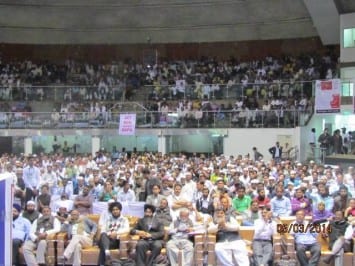


Representative groups of UAPA victims from different places also joined the Conference to share their woeful experiences while under police custody, and in jail. The meeting was addressed by prominent political party leaders, human rights activists, marginalized, and minority community representatives. From Punjab, Advocate Jaspal Singh Manjhpur, Bhai Mandhir Singh, and Advocate Parmjit Singh Gazi, attended the conference. The massive conference was organized by the newly formed common platform People’s Movement Against UAPA, with Moulana Muhamed Wali Rahimani as chairman, Kamal Faruqui as Convener, and E Abu-backer as Vice Chairman.
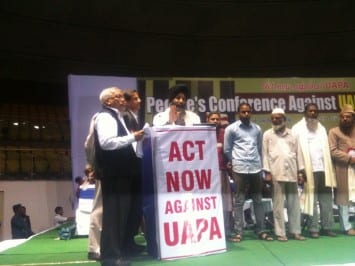


The resolution, passed by the Conference, pointed out that the Unlawful Activities (Prevention) Act of 1967, after successive amendments made in 2004, 2008, and 2012, contains clauses that are against the basic tenets of Indian constitution, principles of human rights, and natural justice. By making amendments to the original act in the name of fighting terrorism, the Indian parliament has incorporated the draconian provisions of lapsed special laws such as the Terrorist and Disruptive Activities (Prevention) Act (TADA), and the Prevention of Terrorism Act (POTA), into a general law. Basic democratic rights like freedom of speech, and expression, and right to form associations, are being violated by the clauses of this law. The resolution also condemned all types of terrorism by non-state, and state actors.
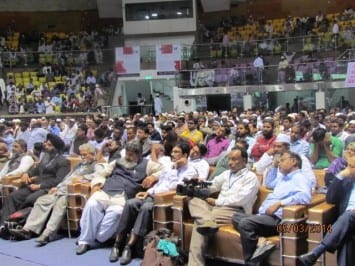


Those who spoke in the Conference reminded the audience that the basic reason for arbitrary arrests, continued detention, and torture of innocents, is because of the legal sanction contained in UAPA, and stated, it is evident that unless, and until, this law is withdrawn, the lamentable stories of jailed innocents will continue. UAPA law is widely used against innocent people from marginalized Tribal, Dalit, Muslim, Sikh, and Christian, communities who are languishing in various jails of Punjab, and India, without even getting statutory bail. Even people involved in raising legitimate protest, and democratic resistance, from marginalized sections, and even the working classes are targeted under this draconian act.
The former repressive laws like TADA, and POTA, were withdrawn when people stood up toact against the severe, and drastic abuses, under those laws. According to various leaders who addressed the audience, despite the frequent, and large scale, persecution of innocents by administration, and police, under UAPA, most political parties have not yet taken a strong stand in favor the victims. The Conference resolution alleged that governments at the Center, and States, have so far ignored the demand for the repeal of UAPA.
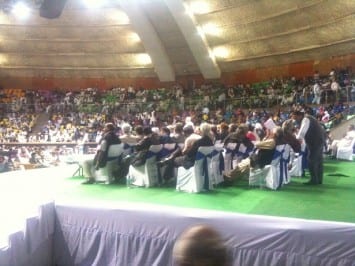


Prior to the massive gathering, a meeting of UAPA victims was held in the same venue. A group of lawyers, and activists, interacted with them, and collected details with the intention to follow up with support. Previously, the platform called People’s Movement Against UAPA was launched by a representative group of concerned citizens in a meeting held at New Delhi on January 23, 2014 for this purpose. Within the short span of the last six weeks, the central delegation of the Movement have interacted with top political leaders, and government functionaries, and visited the state capitals of Thiruvananthapuram, Chennai, Bangalore, Hyderabad, Mumbai, Bhopal, Jaipur, Lucknow, and Patna. Public programs and press conferences were also held at the above places as well as in other cities like Varanasi, and Ludhiana.
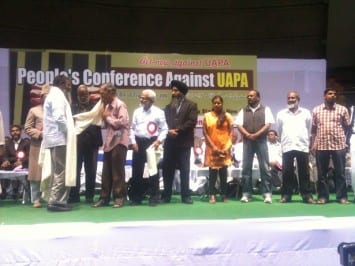


On February 21, 2014, public gatherings known the Night Vigil Day were held in 355 places across the nation by participants holding torches (flashlights) and candles. As part of the campaign, more than two hundred thousand post cards were sent to the Chairperson of the UAPA. Campaign posters, booklets, pamphlets, handbills, etc were published in most of the Indian languages such as Hindi, Urdu, Tamil, Malayalam, Kannada, Telugu, Marathi, Bengali, Manipuri, and Punjabi. Street dramas, and corner meetings, were arranged in various localities of Delhi. In many places, victims of UAPA, and their relatives, shared their sufferings during the campaign.
The People’s Conference in the capital city was concluded with a firm declaration that the movement will be further strengthened across the country until the inhuman law UAPA is removed.




